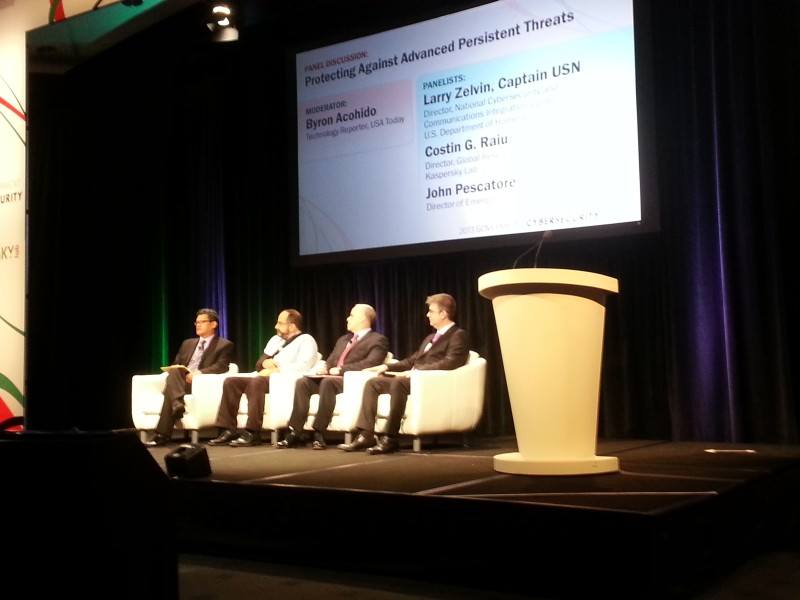Kaspersky Lab held its first annual Government Cybersecurity Forum in Washington, D.C. earlier this week. The overarching conversation related to cybersecurity trends and what America (and other nations) should do to protect itself and its critical infrastructures.
A panel discussion, which followed General Michael Hayden’s keynote and Kaspersky Lab Researcher, Costin Raiu’s presentation on a new cyber-espionage campaign known as NetTraveler, covered APTs and how governments and businesses can protect against such attacks.
Larry Zelvin, Director, National Cybersecurity and Communications Integration Center, U.S. Department of Homeland Security, John Pescatore, Director of Emerging Security Trends, SANS and Costin Raiu joined moderator, Byron Acohido (speakers bios and info available here), to talk about what they are seeing in respective fields and how today’s Advanced Persistent Threats (APTs) against global businesses is relentless, effective and constantly evolving as adversaries continue to improve attack techniques to compromise high-value targets.
In 2013, the high volume of targeted attacks originating from APT campaigns have successfully compromised global entities across multiple industries including Manufacturing, Government, Military, Research & Development, Energy and Petroleum.
Zelvin stated that the number of reported breaches has increased over the past few years, which is a good sign that organizations are taking the issue more seriously. Pescatore said that companies in the private sector are all about reducing costs – the cost of a successful attack, business interruption cost, etc. – but it isn’t about finding a security solution that would solve every problem, it requires a balance. Pescatore also said that as businesses are being targeted more, there is a need for increased information sharing across industries organizations.
As organizations are being attacked more frequently, there has been recent discussion about ‘hacking back’ and whether or not it is ok. While it was stated it was illegal, it was also thought not to be a very realistic solution and it is like a game of “whack-a-mole”. While the conversation’s tone was pretty negative, the panelists were still optimistic that businesses are managing software better and Zelvin said he’s optimistic that it won’t take a tragedy for governments to be aware of the issues at hand.
Raiu said, “Governments are aware of the issues and are open to hearing about evolving problems.”
To check out all of the Tweets, posts and pictures from the event, please visit the stream on Storify.
 Cybersecurity
Cybersecurity

 Tips
Tips